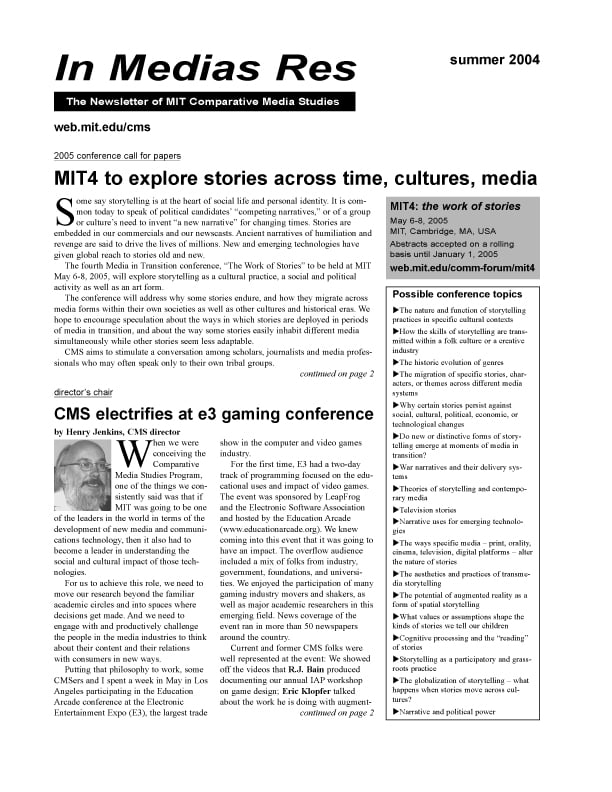
When we were conceiving the Comparative Media Studies Program, one of the things we consistently said was that if MIT was going to be one of the leaders in the world in terms of the development of new media and communications technology, then it also had to become a leader in understanding the social and cultural impact of those technologies.
For us to achieve this role, we need to move our research beyond the familiar academic circles and into spaces where decisions get made. And we need to engage with and productively challenge the people in the media industries to think about their content and their relations with consumers in new ways.
Putting that philosophy to work, some CMSers and I spent a week in May in Los Angeles participating in the Education Arcade conference at the Electronic Entertainment Expo (E3), the largest trade show in the computer and video games industry.
For the first time, E3 had a two-day track of programming focused on the educational uses and impact of video games. The event was sponsored by LeapFrog and the Electronic Software Association and hosted by the Education Arcade (www.educationarcade.org). We knew coming into this event that it was going to have an impact. The overflow audience included a mix of folks from industry, government, foundations, and universities. We enjoyed the participation of many gaming industry movers and shakers, as well as major academic researchers in this emerging field. News coverage of the event ran in more than 50 newspapers around the country.
Current and former CMS folks were well represented at the event: We showed off the videos that R.J. Bain produced documenting our annual IAP workshop on game design; Eric Klopfer talked about the work he is doing with augment-ed reality and location-based gaming at MIT and the Museum of Science; Kurt Squire spoke about his dissertation research using Civilization 3 to teach world history in Boston Schools; Alex Chisholm spoke on behalf of LeapFrog, explaining their commitment to an L for Learning seal that would help parents and teachers identify educational products; Philip Tan demonstrated Revolution to rave reviews; and I played talk-show host interviewing industry spokesperson Doug Lowenstein about support for the educational use of games and game creator Will Wright about the pedagogical assumptions in his products.
There are already conversations about bringing us back next year, and we are in discussions with many key industry players about building a base of support for the work of the Education Arcade.
When we launched Games to Teach three years ago, our primary goal was to spark conversation about an important and neglected topic. Well, now people are talking! The next step is to guide the conversation to a point where our actions can make a difference in terms of what kinds of media content gets produced and how.



